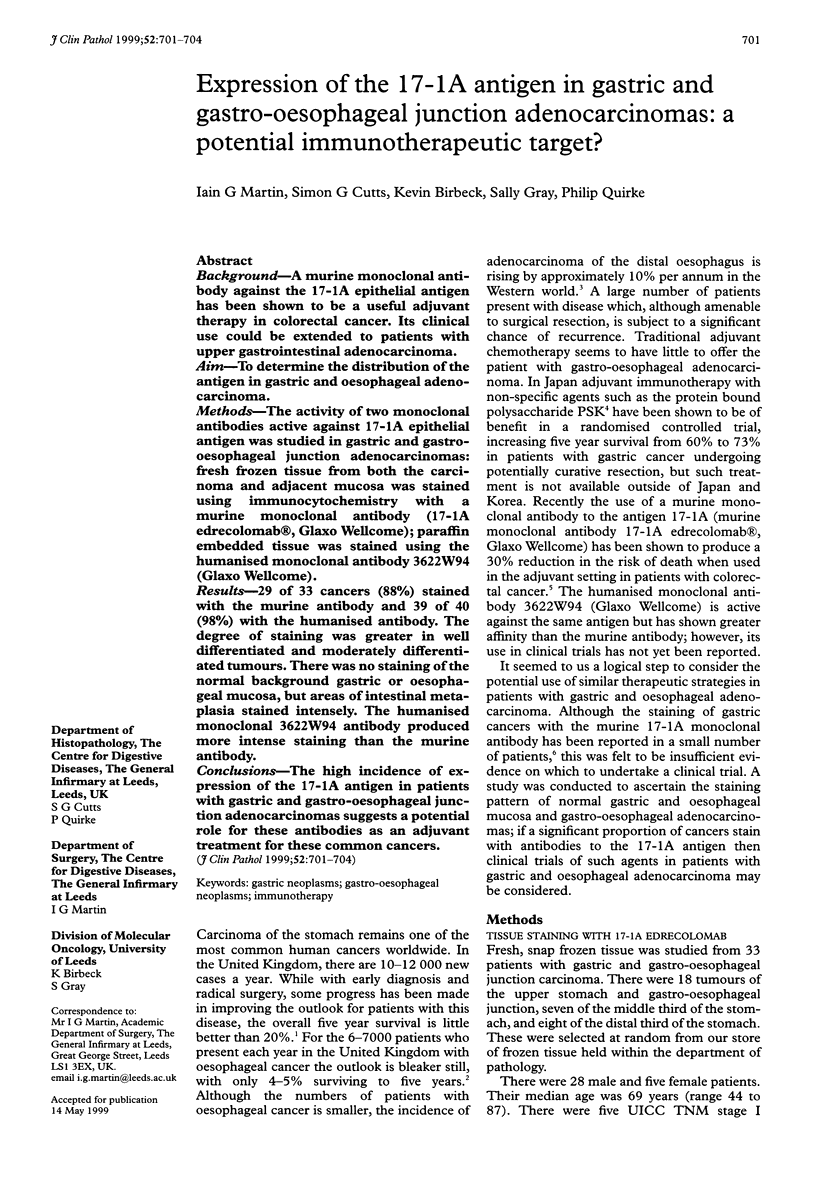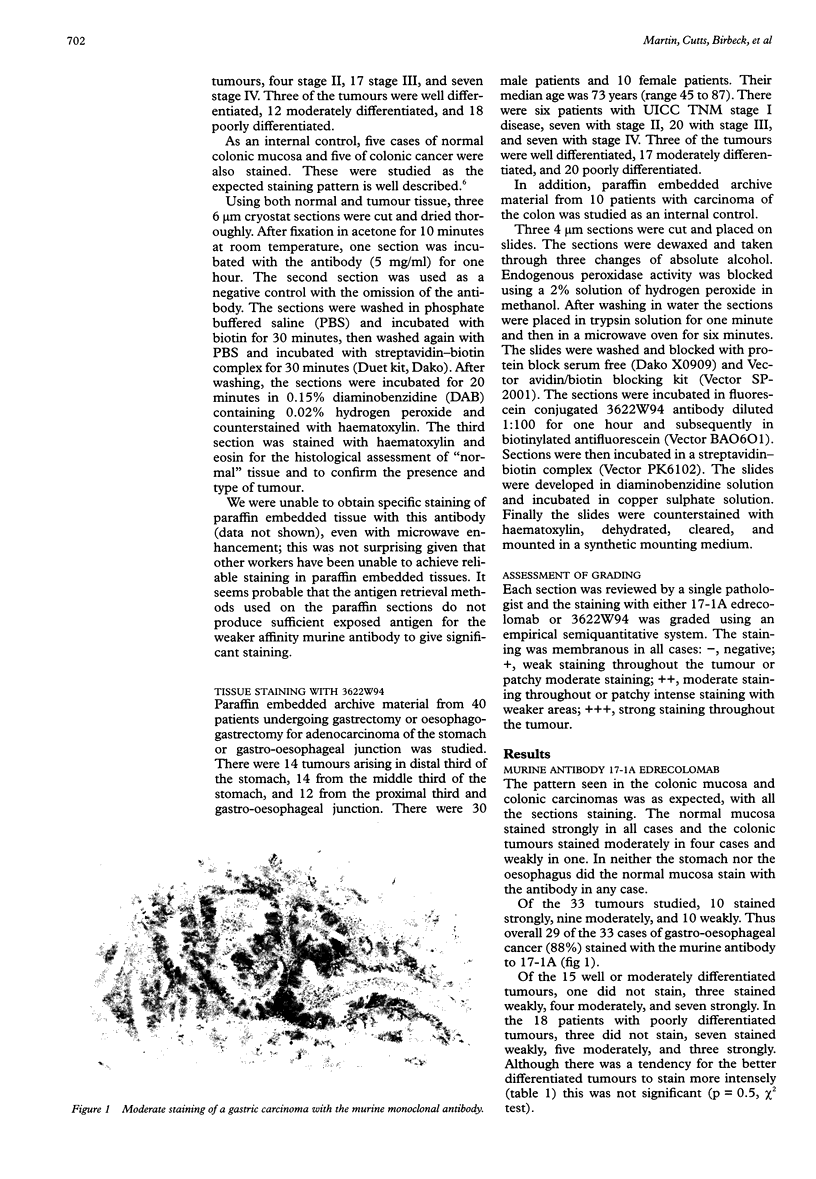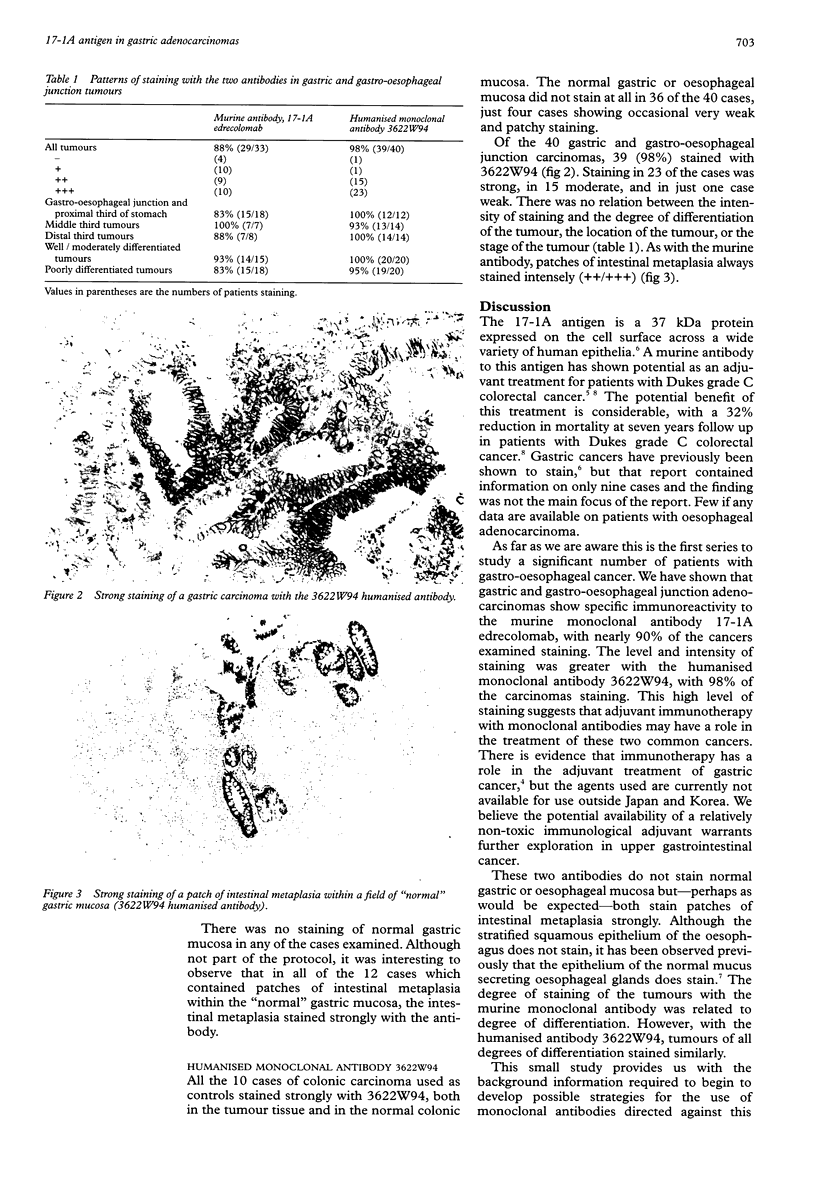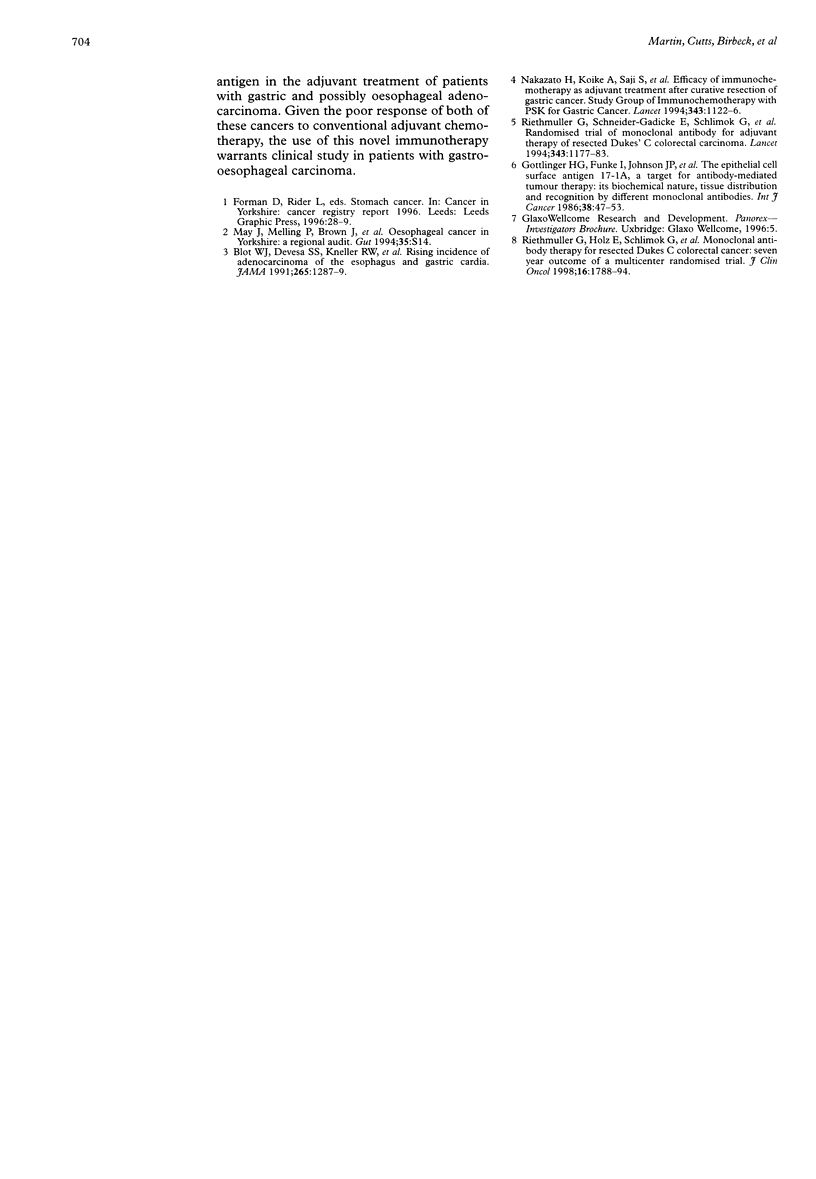Abstract
BACKGROUND: A murine monoclonal antibody against the 17-1A epithelial antigen has been shown to be a useful adjuvant therapy in colorectal cancer. Its clinical use could be extended to patients with upper gastrointestinal adenocarcinoma. AIM: To determine the distribution of the antigen in gastric and oesophageal adenocarcinoma. METHODS: The activity of two monoclonal antibodies active against 17-1A epithelial antigen was studied in gastric and gastro-oesophageal junction adenocarcinomas: fresh frozen tissue from both the carcinoma and adjacent mucosa was stained using immunocytochemistry with a murine monoclonal antibody (17-1A edrecolomab, Glaxo Wellcome); paraffin embedded tissue was stained using the humanised monoclonal antibody 3622W94 (Glaxo Wellcome). RESULTS: 29 of 33 cancers (88%) stained with the murine antibody and 39 of 40 (98%) with the humanised antibody. The degree of staining was greater in well differentiated and moderately differentiated tumours. There was no staining of the normal background gastric or oesophageal mucosa, but areas of intestinal metaplasia stained intensely. The humanised monoclonal 3622W94 antibody produced more intense staining than the murine antibody. CONCLUSIONS: The high incidence of expression of the 17-1A antigen in patients with gastric and gastro-oesophageal junction adenocarcinomas suggests a potential role for these antibodies as an adjuvant treatment for these common cancers.
Full text
PDF



Images in this article
Selected References
These references are in PubMed. This may not be the complete list of references from this article.
- Blot W. J., Devesa S. S., Kneller R. W., Fraumeni J. F., Jr Rising incidence of adenocarcinoma of the esophagus and gastric cardia. JAMA. 1991 Mar 13;265(10):1287–1289. [PubMed] [Google Scholar]
- Göttlinger H. G., Funke I., Johnson J. P., Gokel J. M., Riethmüller G. The epithelial cell surface antigen 17-1A, a target for antibody-mediated tumor therapy: its biochemical nature, tissue distribution and recognition by different monoclonal antibodies. Int J Cancer. 1986 Jul 15;38(1):47–53. doi: 10.1002/ijc.2910380109. [DOI] [PubMed] [Google Scholar]
- Mazlam M. Z., Hodgson H. J. Why measure C reactive protein? Gut. 1994 Jan;35(1):5–7. doi: 10.1136/gut.35.1.5. [DOI] [PMC free article] [PubMed] [Google Scholar]
- Nakazato H., Koike A., Saji S., Ogawa N., Sakamoto J. Efficacy of immunochemotherapy as adjuvant treatment after curative resection of gastric cancer. Study Group of Immunochemotherapy with PSK for Gastric Cancer. Lancet. 1994 May 7;343(8906):1122–1126. doi: 10.1016/s0140-6736(94)90233-x. [DOI] [PubMed] [Google Scholar]
- Riethmüller G., Holz E., Schlimok G., Schmiegel W., Raab R., Höffken K., Gruber R., Funke I., Pichlmaier H., Hirche H. Monoclonal antibody therapy for resected Dukes' C colorectal cancer: seven-year outcome of a multicenter randomized trial. J Clin Oncol. 1998 May;16(5):1788–1794. doi: 10.1200/JCO.1998.16.5.1788. [DOI] [PubMed] [Google Scholar]
- Riethmüller G., Schneider-Gädicke E., Schlimok G., Schmiegel W., Raab R., Höffken K., Gruber R., Pichlmaier H., Hirche H., Pichlmayr R. Randomised trial of monoclonal antibody for adjuvant therapy of resected Dukes' C colorectal carcinoma. German Cancer Aid 17-1A Study Group. Lancet. 1994 May 14;343(8907):1177–1183. doi: 10.1016/s0140-6736(94)92398-1. [DOI] [PubMed] [Google Scholar]





